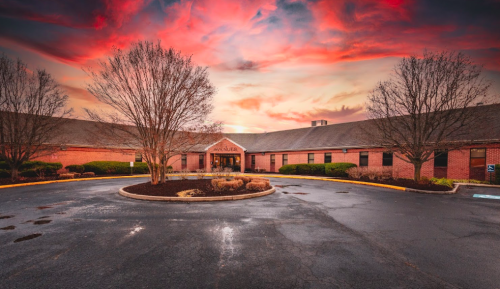
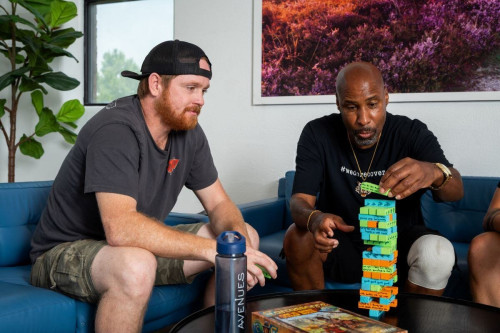

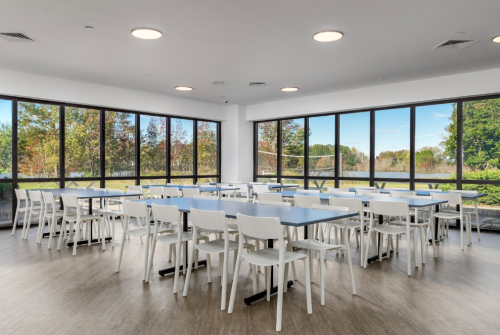
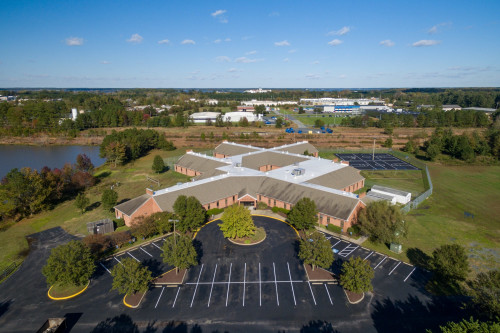




Avenues Recovery Center at Eastern Shore
Verified Center
This provider's information has been quality-checked by Recovery.com's Research Team for accuracy and completeness, including center verification through appropriate third-party organizations.
Treatment Focus
This center treats substance use disorders and co-occurring mental health conditions. Your treatment plan addresses each condition at once with personalized, compassionate care for comprehensive healing.
Primary Level of Care
Offering intensive care with 24/7 monitoring, residential treatment is typically 30 days and can cover multiple levels of care. Length can range from 14 to 90 days typically.
Treatment Focus
This center treats substance use disorders and co-occurring mental health conditions. Your treatment plan addresses each condition at once with personalized, compassionate care for comprehensive healing.
Primary Level of Care
Offering intensive care with 24/7 monitoring, residential treatment is typically 30 days and can cover multiple levels of care. Length can range from 14 to 90 days typically.
Provider's Policy
We believe financial barriers shouldn't stop healing. Avenues Recovery Center is in-network with major providers and accepts most insurance plans and private pay. Our expert admissions team will conduct a free, confidential verification of benefits to maximize your coverage and ensure a sustainable and affordable treatment plan. Call us—we'll answer all your questions.
Avenues Recovery Center at Eastern Shore
Avenues Recovery Center at Eastern Shore
About Avenues Recovery Center at Eastern Shore
Whether it is someone’s first try at rehab or their tenth, Avenues Recovery Center at Eastern Shore offers top-tier treatment and a community that cares. They provide a full continuum of care spanning detox, residential, and outpatient programs, as well as medication-assisted treatment (MAT) and a close-knit alumni program. They work with all insurance plans and Medicaid to ensure that healing is affordable for everyone and offer specialized support for veterans.
Heal on Every Level
At the core of Avenues’ treatment philosophy is the belief that each person’s recovery journey is unique. Their clinicians create individualized treatment plans, choosing from a variety of targeted, tried-and-true treatment modalities to deliver the most effective treatment experience. Days are filled with a challenging yet energizing mix of individual therapy, group sessions, educational workshops, skill-building, and recovery-focused recreational activities, as you expand your recovery toolbox and develop effective coping techniques.
Experience Peaceful, Communal Living
At Avenues’ residential treatment center, every effort is made to ensure the client is well cared for, well nourished, and in a peaceful environment supporting recovery. Clients live in a pleasant, communal-style building with round-the-clock medical supervision. They share a bedroom and bathroom with one or two other people. Three meals and snacks are served daily, and clients have time to relax and socialize with fellow attendees. If someone has no way of getting to the facility, Avenues arranges safe transportation.
Plan to Make Sobriety Stick Post-Treatment
At Avenues, aftercare/discharge planning begins at intake. Throughout a client’s stay, the treatment and case management teams work together to create a realistic, sustainable aftercare plan that will help the client stay strong in their sobriety for years to come. Every client is set up with a primary care physician, therapist, housing (if necessary) and local support group before they are discharged.

Highlights from the Center
Highlights
These highlights are provided by and paid for by the center.
Medically Assisted Detox
Certified Professionals
Master's Level Therapists
Addiction Recovery
Center Overview
Treatment Focus
This center treats substance use disorders and co-occurring mental health conditions. Your treatment plan addresses each condition at once with personalized, compassionate care for comprehensive healing.
Joint Commission Accredited
The Joint Commission accreditation is a voluntary, objective process that evaluates and accredits healthcare organizations (like treatment centers) based on performance standards designed to improve quality and safety for patients. To be accredited means the treatment center has been found to meet the Commission's standards for quality and safety in patient care.

Avenues Recovery Center at Eastern Shore
Insurance Accepted
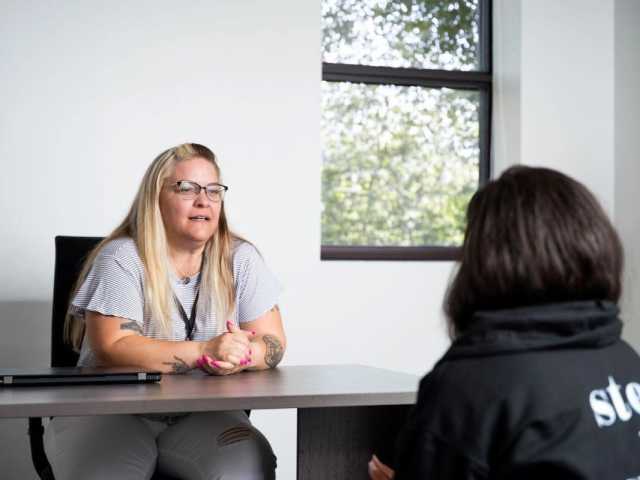

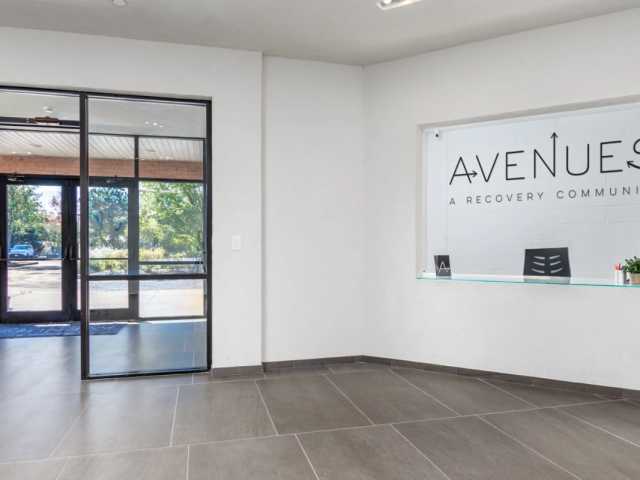

More Avenues Recovery Center Locations
Recovery.com Verified Listing
Recovery.com verified that the name, location, contact information and license to operate for this treatment provider are valid and up-to-date.

Licensed by Maryland
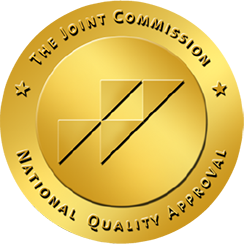
Joint Commission Accredited
Recovery.com is an independent, third-party mental health resource. Verification does not imply endorsement and does not guarantee the quality of treatment services.
Meet Your Care Team

Moshe Schonbrun
Regional Executive Director
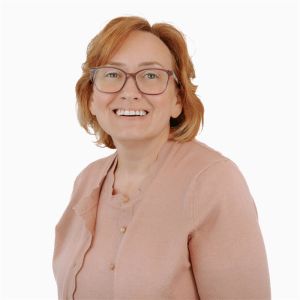
Genia Grimes
Nurse Practitioner
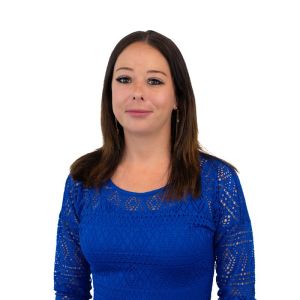
Jessica Montefarrario
Primary Counselor
ADT
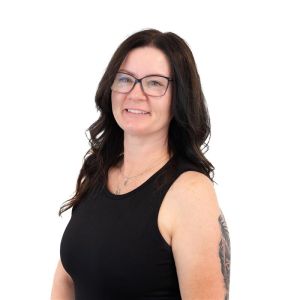
Karen Johnson
Nurse Practitioner
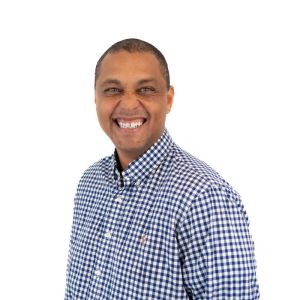
Ryan Dobbs
Primary Counselor
LGPC
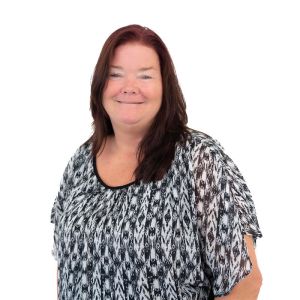
Tammy Brown
Administrator
Your Care Options
Specializations
Alcohol
Using alcohol as a coping mechanism, or drinking excessively throughout the week, signals an alcohol use disorder.
Detox
Detox fully and safely removes toxic substances from the body, allowing the next steps in treatment to begin with a clean slate.
Holistic
A non-medicinal, wellness-focused approach that aims to align the mind, body, and spirit for deep and lasting healing.
Medication-Assisted Treatment
Combined with behavioral therapy, prescribed medications can enhance treatment by relieving withdrawal symptoms and focus patients on their recovery.
Motivational Interviewing
Based on the idea that motivation to change comes from within, providers use a conversational framework to discover personalized methods for change.
Veterans
Patients who completed active military duty receive specialized treatment focused on trauma, grief, loss, and finding a new work-life balance.
Who We Treat
Pregnant Women
Addiction and mental health treatment meets the clinical and psychological needs of pregnant women, ensuring they receive optimal care in all areas.
Veterans
Patients who completed active military duty receive specialized treatment focused on trauma, grief, loss, and finding a new work-life balance.
Treatment Services
Day Treatment
In a PHP, patients live at home but follow an intensive schedule of treatment. Most programs require you to be on-site for about 40 hours per week.
Detox
Detox fully and safely removes toxic substances from the body, allowing the next steps in treatment to begin with a clean slate.
Intensive Outpatient Program
In an IOP, patients live at home or a sober living, but attend treatment typically 9-15 hours a week. Most programs include talk therapy, support groups, and other methods.
Outpatient
During outpatient rehab, patients attend a structured treatment program while continuing to live at home.
Residential
In a residential rehab program, patients live onsite, with access to daily treatment and 24-hour care. An average stay is 30-90 days.
Approaches
Evidence-Based
A combination of scientifically rooted therapies and treatments make up evidence-based care, defined by their measured and proven results.
Holistic
A non-medicinal, wellness-focused approach that aims to align the mind, body, and spirit for deep and lasting healing.
Individual Treatment
Individual care meets the needs of each patient, using personalized treatment to provide them the most relevant care and greatest chance of success.
Personalized Treatment
The specific needs, histories, and conditions of individual patients receive personalized, highly relevant care throughout their recovery journey.
Twelve Step
Incorporating spirituality, community, and responsibility, 12-Step philosophies prioritize the guidance of a Higher Power and a continuation of 12-Step practices.
Therapies
1-on-1 Counseling
Patient and therapist meet 1-on-1 to work through difficult emotions and behavioral challenges in a personal, private setting.
Meditation & Mindfulness
A practiced state of mind that brings patients to the present. It allows them to become fully aware of themselves, their feelings, and the present moment.
Animal Therapy
Animals can inspire trust and self-worth. In this experiential therapy, guided interactions are used to improve social skills and emotion regulation.
Art Therapy
Visual art invites patients to examine the emotions within their work, focusing on the process of creativity and its gentle therapeutic power.
Expressive Arts
Creative processes like art, writing, or dance use inner creative desires to help boost confidence, emotional growth, and initiate change.
Family Therapy
Family therapy addresses group dynamics within a family system, with a focus on improving communication and interrupting unhealthy relationship patterns.
Conditions We Treat
Schizophrenia
Schizophrenia is a serious mental health condition that causes hallucinations, delusions, and disordered thinking.
Grief and Loss
Grief is a natural reaction to loss, but severe grief can interfere with your ability to function. You can get treatment for this condition.
Personality Disorders
Personality disorders destabilize the way a person thinks, feels, and behaves. If untreated, they can undermine relationships and lead to severe distress.
ADHD, ADD
ADHD is a common mental health condition caused by dopamine imbalance. Common symptoms include inattention, hyperactivitiy, and impulsivity.
Anger
Although anger itself isn't a disorder, it can get out of hand. If this feeling interferes with your relationships and daily functioning, treatment can help.
Anxiety
Anxiety is a common mental health condition that can include excessive worry, panic attacks, physical tension, and increased blood pressure.
Bipolar
This mental health condition is characterized by extreme mood swings between depression, mania, and remission.
Burnout
Burnout entails mental and physical exhaustion, and leads to a severe lack of fulfillment. This condition is often caused by overwork.
Substances We Treat
Alcohol
Using alcohol as a coping mechanism, or drinking excessively throughout the week, signals an alcohol use disorder.
Benzodiazepines
Benzodiazepines are prescribed to treat anxiety and sleep issues. They are highly habit forming, and their abuse can cause mood changes and poor judgement.
Chronic Relapse
Consistent relapse occurs repeatedly, after partial recovery from addiction. This condition requires long-term treatment.
Co-Occurring Disorders
A person with multiple mental health diagnoses, such as addiction and depression, has co-occurring disorders also called dual diagnosis.
Cocaine
Cocaine is a stimulant with euphoric effects. Agitation, muscle ticks, psychosis, and heart issues are common symptoms of cocaine abuse.
Drug Addiction
Drug addiction is the excessive and repetitive use of substances, despite harmful consequences to a person's life, health, and relationships.
Heroin
Heroin is a highly addictive and illegal opioid. It can cause insomnia, collapsed veins, heart issues, and additional mental health issues.
Psychedelics
Hallucinogenic drugs—like LSD—cause euphoria and increased sensory experiences. When abused, they can lead to depression and psychosis.
Languages
Aftercare
Care Designed for Your Needs
Personal Amenities
Amenities
Special Considerations
Gender-specific groups
Patients in gender-specific groups gain the opportunity to discuss challenges unique to their gender in a comfortable, safe setting conducive to healing.
Activities
Yoga
Yoga is both a physical and spiritual practice. It includes a flow of movement, breathing techniques, and meditation.
Off-Site Activities
Off-Site Amenities

Learn More About the Center
Life After Rehab: A Guide to Enjoyable Sober Activities
Discover 10 ways to enjoy life in sobriety with uplifting, connection-building activities.
What Recovery Really Looks Like
Explore an honest look at recovery that highlights hope, growth, and real-life transformation.
What We Wish Our Families Knew About Addiction
Gain heartfelt insight into what loved ones often miss about addiction and the healing journey.
Why “Just Stop” Isn’t So Simple
Learn about the science of making choices and why recovery takes more than willpower.
What people are saying
Treatment
4.4
Accommodations
4.3
Food & Nutrition
4.5
Value
4.5
Pros
- Beautiful Location (2)
- Gourmet & Nutritious Food (2)
- Friendly & Competent Staff (2)
- Confidential (2)
Adam C.
Treatment in 2026 • (45 days) • Reviewed 02/25/26
Former Client
Mr. Mister
Treatment in 2026 • (45 days) • Reviewed 02/24/26
Former Client
EW
Treatment in 2026 • (45 days) • Reviewed 02/16/26
Former Client
•Mechanic
B.B.
Treatment in 2026 • (30 days) • Reviewed 02/13/26
Former Client
•Holyoke Massachusettes
frank k
Treatment in 2025 • (44) • Reviewed 02/11/26
Former Client
•landscaping
•middle river maryland





